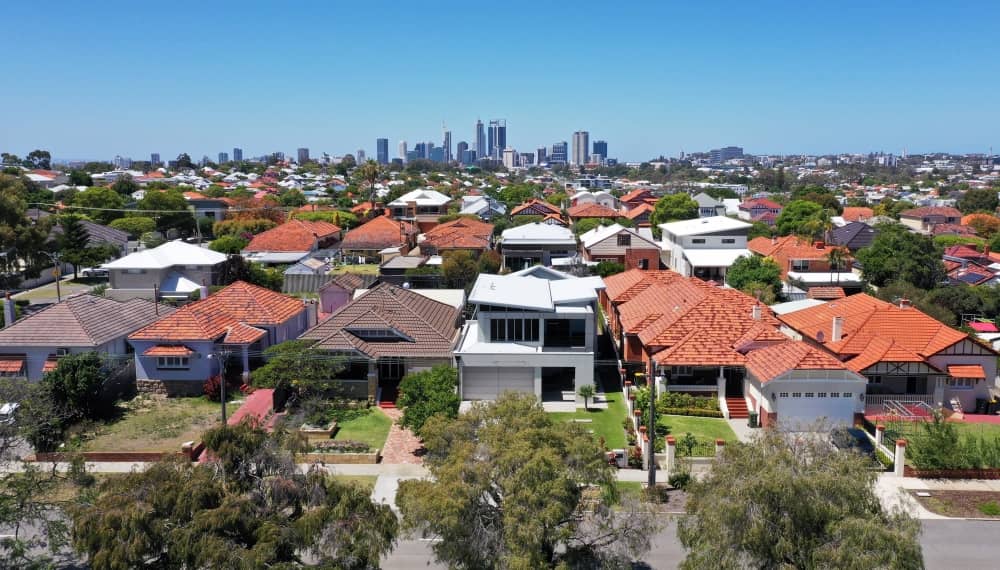Defence Housing Australia (DHA) is a government entity that provides housing and other various services to members of the Australian Defence Force (ADF) and their families. DHA leases and manages properties, known as DHA properties, which are typically located in or in proximity to Defence bases. It is also responsible for overseeing rental operations, including property maintenance, on behalf of the country’s Department of Defence.
Are you interested in buying a DHA property? Here’s the good news: you can have a stable and secure investment opportunity even if you are not an ADF member. However, there are vital aspects to understand, including fees and the workings of DHA property management. This blog will provide the answers, so you don’t have to search any further.
DHA management – Tenancy & Vacancy
A vital component of DHA property management is tenant placement, which is the process of finding suitable occupants for available or vacant properties. As mentioned, DHA housing is typically reserved for members of the Australian Defence Force. Families of the ADF members are welcome, as well.
One thing to note is that DHA generally offers long lease terms, often aligning with the ADF posting durations. For the investor, this is particularly beneficial because long lease terms make the investment predictable and stable at the same time. This is one of the primary advantages of DHA rentals compared to apartments and the like.
Additionally, you don’t have to prepare for new tenants on your own, as it will fall under the property manager’s responsibilities. You can leave the job of cleaning, maintenance, and other upgrades to DHA, who will also actively engage in marketing and advertising to attract new tenants to your vacant property. Because DHA does not want unoccupied homes, the government entity can help ensure that you get a consistent rental income stream by minimising the time your property remains vacant. No other investment can assist you in achieving that.
How Are Repairs Handled in a DHA Lease?
Investors can breathe a sigh of relief when it comes to property repairs. DHA mostly takes the lead in ongoing repairs and maintenance of your investment property. Still, as the property owner, you have a few minimal duties to learn about.
Whilst DHA assumes primary responsibilities when it comes to the management and upkeep of the DHA property on your behalf, solving issues with pests and building structures is part of your tasks as the owner. However, the agency can help you facilitate all the work that should be done. Typically, DHA will take care of both essential and non-essential repairs. That includes significant renovations whose costs are also borne by the agency.
Meanwhile, tenants are advised to report necessary repairs as promptly as possible. There are many channels to choose from, making reporting more straightforward, such as online platforms and DHA’s phone hotlines. DHA assigns a network of service providers and contractors to carry out tasks to keep the home in good condition. In general, tenants do not have to arrange repairs or even pay for them (although the costs may already be added to the total rent price). There are certain situations, however, as outlined in the lease agreement, when a tenant may be responsible for the service costs.
As for the response time, DHA aims to provide prompt service. Routine or scheduled maintenance may also be provided, such as painting, roof, landscaping, and more, to ensure the properties remain well-maintained.
Who is in Charge of Emergency Repairs?
When tenants report their repair requirements, DHA categorises them into different priority levels. These levels are based on the urgency of the situation. Those that may have an impact on the habitability, safety, and comfort of the home will always be prioritised. In many cases, plumbing, electrical issues, and gas leaks are given the highest priority, as these issues, when left unaddressed, may endanger life and the property itself.
As with any emergency, immediate action is a must. That includes the tenant, who should take the critical steps to minimise the risks. For example, they may have to shut off gas or water. In some cases, evacuation may be necessary to ensure the safety of the tenants.
If the emergency is reported right away, DHA strives to respond quickly. However, tenants must report as immediately as they can since the response times may be affected if the contractors are not available near the area.
Whether it’s an emergency or a standard repair, communication between the tenant and DHA is a necessity. It ensures a fast and smooth repair process to avoid worsening the problem. You may want to encourage your tenants to provide feedback on the service quality so the DHA knows about the areas they may have to improve.
Who Organises Property Inspections?
A routine part of DHA property management is inspection, which is often conducted at regular intervals throughout the occupancy. DHA generally performs standard property inspections every six months to assess the condition of the property. The goal here is to make sure that the house is well-maintained and there are no significant issues.
Prior to each inspection, though, tenants will usually receive a memo where the date and time of the evaluation will be provided. The notice may also include instructions to help the tenant prepare for the process. When the time comes for the inspection, a property manager or a DHA representative will look around and check the property’s condition to see if any damage or visible wear and tear may require improvements.
Tenants may be allowed to stay during the inspection so they can talk with the representative, especially if they have any concerns or maintenance requests.
All results will be documented, which will include the identified issues and the potential solutions to address them. In certain cases, a follow-up inspection may be necessary. Once again, the tenant will be informed before the visit.
How Do Rent Reviews Work for a DHA Home?
Rents are a part of the structured DHA system, providing housing members with the details they need before they commit to living in one of the DHA properties. Although all ADF members can rent, it should be noted that there are eligibility criteria based on military rank and service that must be met.
The cost of renting a DHA property varies depending on several factors, such as the size of the house, its location and features, and the duration of the lease. The amount varies because it is often set according to the market rates.
Rent is mainly deducted straight from the ADF salary of the tenant, which simplifies payments and helps avoid the risk of missed payments. Tenants should also be aware that rent adjustments are done periodically. As mentioned, the rent amount is based on the market conditions. Should there be any changes, the tenant will be informed about the imminent increase in advance.
If eligible, certain ADF members may be offered rent assistance through government programs. Allowances may also be provided to cover housing costs.
A rent review takes place in December each year, and an independent Registered Valuer will inspect the home. They will compare the property to others locally of a similar size and value, before making their recommendations on any rental increase to DHA.
What Service and Property Management Fees are involved?
Renting a DHA property comes with various service fees and charges. These costs often relate to the management, maintenance, and repair of the properties to ensure they stay in good condition. A portion of the service fees also covers tenant support so that all issues are addressed quickly and effectively.
The following are the most common service fees with DHA rental properties:
- The property management fee pertains to administrative costs relating to managing the lease agreement. It also covers rent collection, along with inspections.
- The total rent mostly includes the fee for maintenance and repairs. Although a little costly, it is essential to pay for the cost of routine maintenance and necessary repairs of the property.
- Tenants may be charged with a lease administration service fee, which includes the preparation of lease documentation and other related papers.
- DHA may also include a property inspection fee for routine inspections, which will pay for the cost of sending property managers or representatives to evaluate the present condition of the property.
- Gardening, landscaping, and other services may be included in the rent. It is important for the tenant to read the lease agreement to understand which utilities and other services are included in the overall rental price and which are not.
- There may be additional or miscellaneous fees that will be charged to the tenant. For example, cleaning and key replacement may be added to the total rent.
Tenants, as well as the property investor, must communicate regularly with DHA to grasp specific costs and fees associated with the rental property.
Whether you are planning to rent or invest in a DHA property, it is essential to understand the costs and fees involved. If you get involved in DHA investment or are simply want to learn more, feel free to contact R&W Investment Sales. We are Queensland’s specialists in buying and selling DHA properties.



